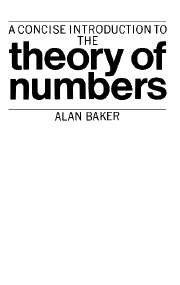Summary
Foundations
The set 1, 2, 3, … of all natural numbers will be denoted by ℕ. There is no need to enter here into philosophical questions concerning the existence of ℕ. It will suffice to assume that it is a given set for which the Peano axioms are satisfied. They imply that addition and multiplication can be defined on ℕ such that the commutative, associative and distributive laws are valid. Further, an ordering on ℕ can be introduced so that either m < n or n < m for any distinct elements m, n in ℕ. Furthermore, it is evident from the axioms that the principle of mathematical induction holds and that every non-empty subset of ℕ has a least member. We shall frequently appeal to these properties.
As customary, we shall denote by ℤ the set of integers 0, ±1, ±2, …, and by ℚ the set of rationals, that is the numbers p/q with p in ℤ and q in ℕ. The construction, commencing with ℕ, of ℤ, ℚ and then the real and complex numbers ℝ and ℂ forms the basis of Mathematical Analysis and it is assumed known.
Division algorithm
Suppose that a, b are elements of ℕ. One says that b divides a (written b|a) if there exists an element c of ℕ such that a = bc.
Information
- Type
- Chapter
- Information
- A Concise Introduction to the Theory of Numbers , pp. 1 - 7Publisher: Cambridge University PressPrint publication year: 1984
